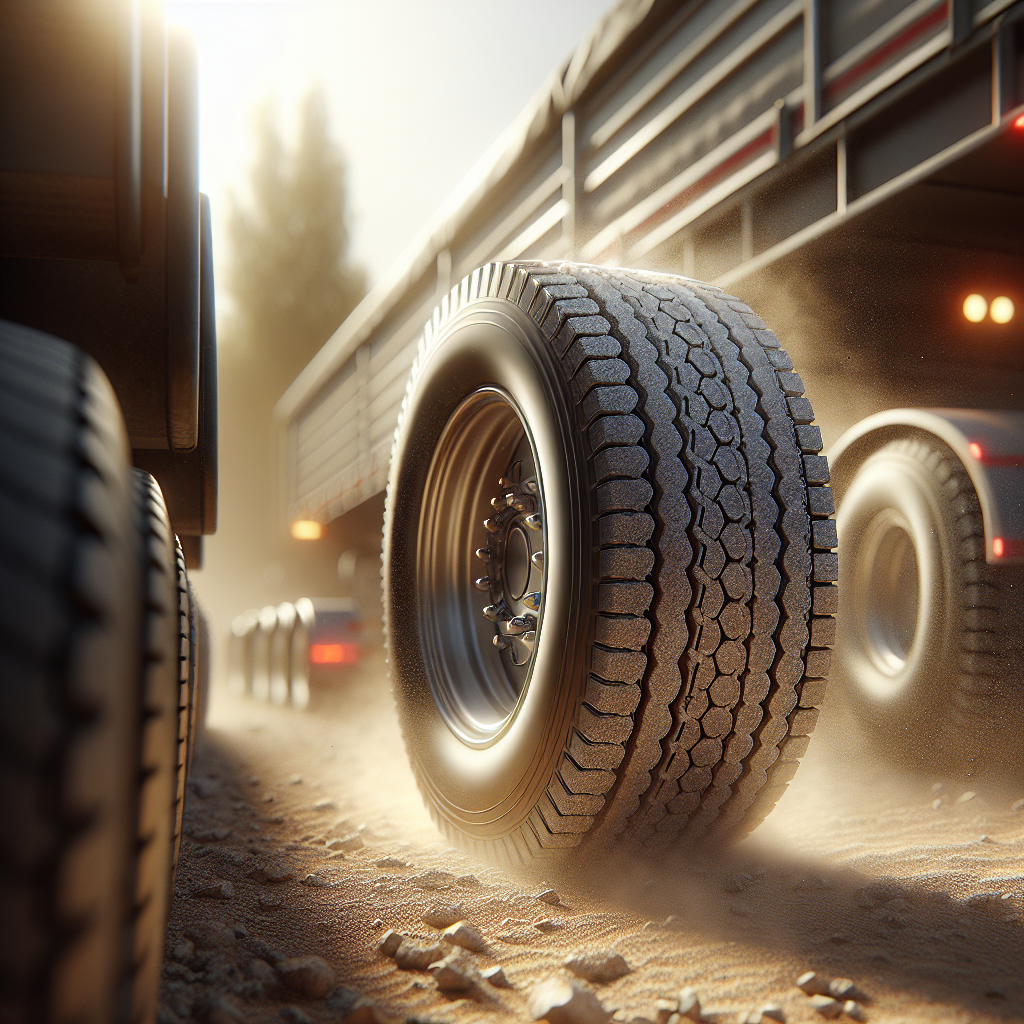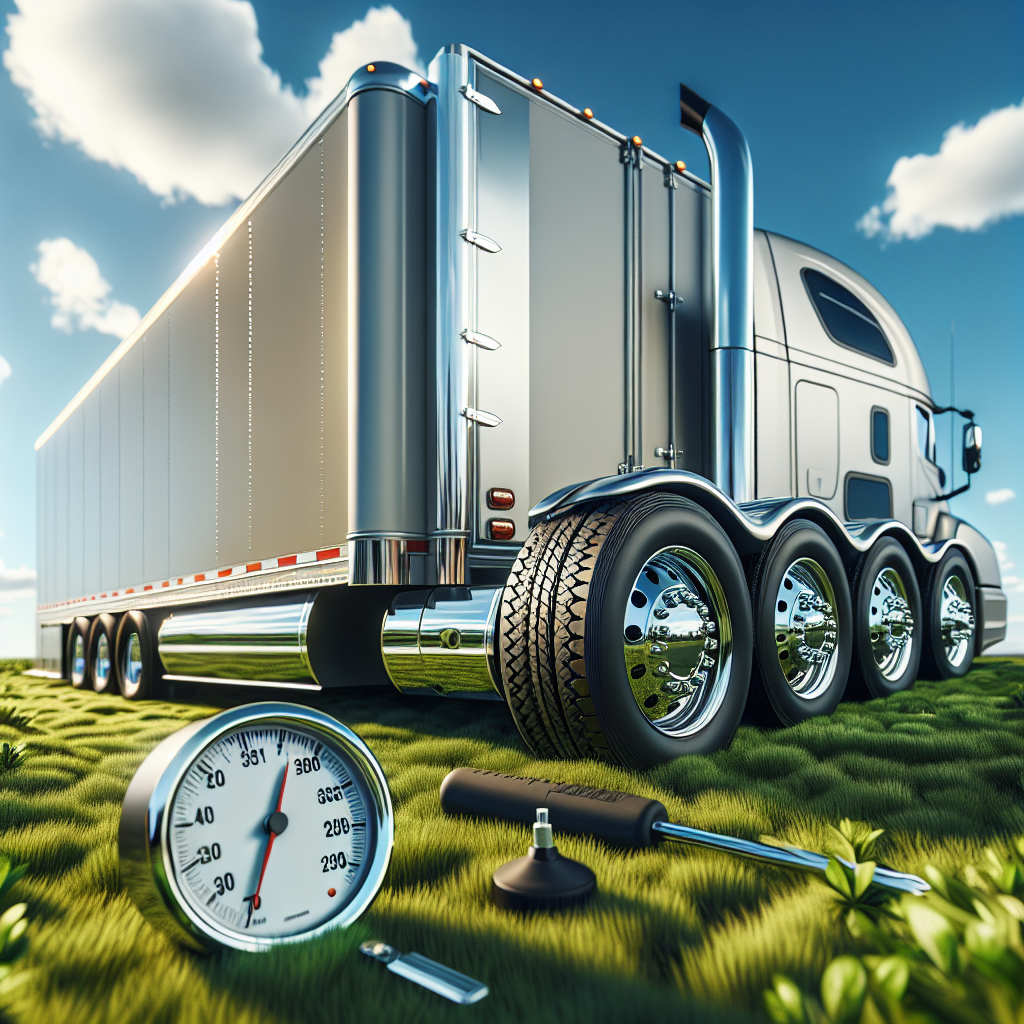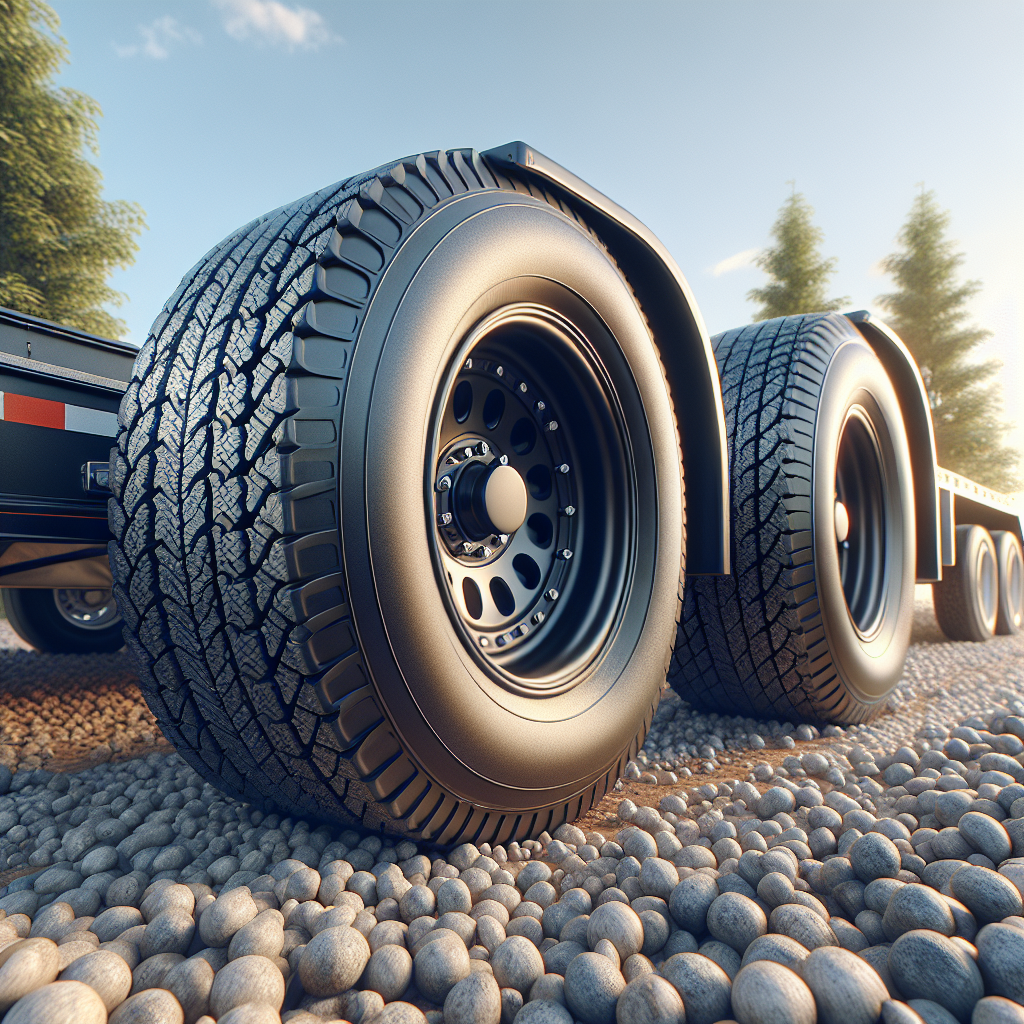Maintaining the correct tire pressure on your trailer is crucial for both safety and performance. Proper tire pressure ensures that your trailer performs optimally, reducing the risk of accidents caused by tire blowouts or handling issues. When the tire pressure is within the recommended range, the tires are able to distribute weight evenly, which in turn improves stability and control while towing.
Moreover, incorrect tire pressure can lead to:
- Increased wear and tear: Under-inflated tires wear out faster and can lead to costly replacements.
- Poor fuel efficiency: Tires that are not properly inflated can increase rolling resistance, causing your vehicle to consume more fuel.
- Heat buildup: Excessive heat generated from under-inflated tires can lead to catastrophic failures.
By ensuring your trailer's tires are inflated to the correct pressure, you not only enhance safety but also improve the longevity of your tires and the overall efficiency of your towing experience. Tow with peace of mind, knowing that trailerwatchdog is standing guard.
Recommended Tire Pressure Levels for Different Trailers

Understanding the recommended tire pressure levels for different types of trailers is essential for safe towing. The optimal tire pressure can vary based on the trailer's design, load capacity, and intended use. Here are some general guidelines:
- Utility Trailers: Typically, the recommended tire pressure ranges from 50 to 70 PSI, depending on the load. Always check the tire sidewall for specific recommendations.
- Travel Trailers: These often require a lower tire pressure, usually around 35 to 60 PSI. The pressure will depend on the weight of the trailer and the load it carries.
- Boat Trailers: For boat trailers, a tire pressure of 35 to 50 PSI is generally recommended. It's important to consider the weight of the boat and any additional gear being transported.
- Fifth Wheel Trailers: These larger trailers may need a pressure range of 50 to 80 PSI, depending on the load distribution and tire specifications.
Always consult the manufacturer’s guidelines or the tire sidewall markings to determine the correct tire pressure for your specific trailer model. Keeping tire pressure within the recommended levels not only enhances safety but also optimizes performance during towing.
How to Check Tire Pressure Effectively

Checking the tire pressure on your trailer is a simple yet crucial maintenance task that can prevent potential issues on the road. Here’s a step-by-step guide on how to check tire pressure effectively:
- Gather Your Tools: You will need a reliable tire pressure gauge. Digital gauges are easy to read, while analog gauges can be more economical.
- Check the Temperature: Tire pressure should be checked when tires are cold, ideally before towing. Heat generated during driving can increase tire pressure readings, leading to inaccuracies.
- Remove Valve Caps: Unscrew the valve caps from each tire. Keep them in a safe place to avoid losing them.
- Measure the Pressure: Press the tire pressure gauge onto the valve stem firmly. Ensure there is a good seal to get an accurate reading. The gauge will display the current tire pressure.
- Compare with Recommended Levels: Check the reading against the manufacturer’s recommended tire pressure for your trailer. If the pressure is below the recommended level, inflate the tires accordingly.
- Recheck and Replace Valve Caps: After adjusting the pressure, recheck each tire to ensure they are all at the correct levels. Replace the valve caps securely to prevent dirt and moisture from entering.
By following these steps, you can maintain optimal tire pressure, enhancing your trailer's performance and safety on the road.
Consequences of Incorrect Tire Pressure on Trailers
Maintaining the correct tire pressure on your trailer is essential for a safe and efficient towing experience. Incorrect tire pressure can lead to several serious consequences:
- Increased Tire Wear: Both under-inflated and over-inflated tires can result in uneven wear. Under-inflated tires can cause the edges to wear out rapidly, while over-inflated tires may lead to excessive wear in the center.
- Decreased Fuel Efficiency: Improper tire pressure can lead to increased rolling resistance, which requires more power and ultimately reduces fuel efficiency. This can significantly add to your towing costs over time.
- Reduced Traction and Handling: Tires that are not at the correct pressure impair your trailer’s handling and traction. This can be particularly dangerous in adverse weather conditions, increasing the risk of skidding or losing control.
- Risk of Blowouts: Over-inflated tires are more susceptible to blowouts, while under-inflated tires can overheat due to excessive flexing. Both scenarios can lead to catastrophic failure, posing a serious threat to safety.
- Impact on Load Capacity: Incorrect tire pressure can affect the load capacity of your trailer. Under-inflation can lead to tire failure under heavy loads, which can result in costly damages and dangerous situations.
Understanding the consequences of incorrect tire pressure is vital for maintaining your trailer's safety and performance. Ensuring that your tires are always inflated to the correct levels will help you avoid these issues, allowing for a stress-free towing experience.
Tips for Maintaining Optimal Tire Pressure

Maintaining optimal tire pressure is crucial for the safety and performance of your trailer. Here are some practical tips to help you keep your tires in top shape:
- Regularly Check Tire Pressure: Make it a habit to check your tire pressure at least once a month and before long trips. Use a reliable tire pressure gauge to ensure accuracy.
- Follow Manufacturer Recommendations: Always refer to the trailer's owner manual or the tire placard for the recommended tire pressure. This information is tailored to your specific trailer and its load capacity.
- Inspect Tires for Damage: While checking tire pressure, take a moment to inspect tires for any visible signs of damage, such as cuts, bulges, or uneven wear, which may indicate underlying issues.
- Adjust for Load Changes: If you frequently load your trailer with varying weights, adjust the tire pressure accordingly. Heavier loads may require a higher pressure, while lighter loads can be balanced at the manufacturer's recommended levels.
- Monitor Temperature: Tire pressure can vary with temperature changes. It's advisable to check pressure when tires are cold, as driving heats them up and can give a false reading.
- Rotate Tires: Regular tire rotation can help ensure even wear and prolong the life of your tires. Follow a rotation schedule based on the manufacturer's guidelines.
By following these simple tips, you can maintain optimal tire pressure, ensuring your trailer remains safe and efficient on the road.
Using Technology to Monitor Tire Pressure

In today's fast-paced world, leveraging technology to monitor tire pressure can significantly enhance your safety and efficiency while towing. Advanced systems, such as smart trailer monitoring solutions, offer real-time data on tire pressure, ensuring that you are always informed about your trailer's condition.
These systems utilize sensors installed on each tire to continuously monitor pressure levels. When tire pressure dips below the recommended threshold, the system sends alerts directly to your smartphone or onboard computer, allowing for immediate action. This proactive approach helps prevent potential blowouts and catastrophic failures, providing peace of mind during your travels.
Additionally, many modern monitoring systems come equipped with features such as:
- Temperature Monitoring: Keep track of tire temperature to prevent overheating, which can lead to tire failure.
- Historical Data Tracking: Review past tire performance trends to identify potential issues before they become serious.
- Integration with Other Systems: Some devices can be integrated with your vehicle’s existing systems for a comprehensive overview of your towing setup.
By adopting these innovative technologies, you can ensure your trailer is always in optimal condition, enhancing both safety and performance.
Tow with peace of mind, knowing that trailerwatchdog is standing guard.








